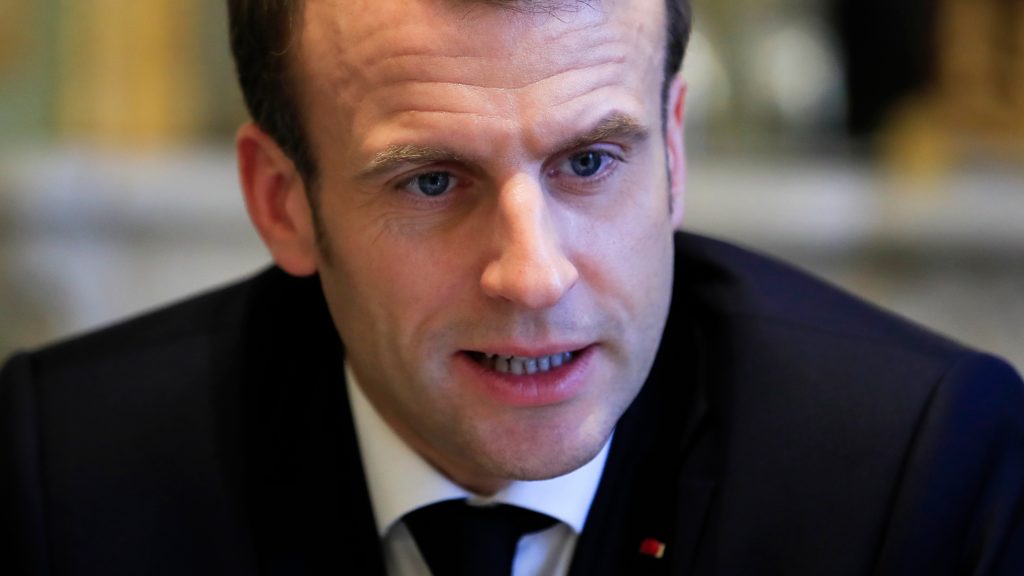EurActiv (14 February 2019)
“No special contingency measures for data flows” will be taken out in the case of a no-deal Brexit, according to documents released on Monday (11 February) .
The documents disclose a private meeting between Commission Secretary-General Martin Selmayr and representatives from the telecommunications giant Vodafone and were made public after a freedom of information request was issued by the German digital news platform, Netzpolitik.org.
“Given the high degree of alignment between the UK and the EU on data protection, the UK does not intend to impose additional requirements on data flows to the EU after exit day,” a UK government spokesperson told EURACTIV, in response to the concerns highlighted in the document.
“In the event of a no deal Brexit, we will continue to press for a rapid adequacy decision from the European Commission to minimise disruption to the free flow of data.”
UK becomes a ‘third country’
Following publication of the document, the European Data Protection Board (EDPB) published an information note on Tuesday, signed by chair Andrea Jelinek.
“In the absence of an agreement between the EEA and the UK (no-deal Brexit), the UK will become a third country from 00.00am CET on 30 March 2019,” the note reads, continuing to say that as a result, the transfer of personal data to the UK has to be based on the adoption of a future legal instrument, regardless of the fact that the UK is compliant with the EU’s General Data Protection Regulation (GDPR), which puts rules in place as to how companies obtain, process and store personal data.
As the document released earlier this week reveals, businesses are anxious. EURACTIV approached Vodafone to expand on their concerns aired in the meeting with Selmayr.
“All stakeholders understand the critical importance of the free flow of data between the UK and EU,” a Vodafone spokesperson said.
“We are hopeful that measures will be put in place to ensure the free movement of data from UK businesses across the EU and vice versa.”
Adequacy agreement
EURACTIV reported in October that Digital Minister Margot James had admitted to MPs that substantive talks on data sharing between the EU and UK were yet to start.
The UK government has previously said that it would push for an adequacy agreement with the EU after the UK’s withdrawal from the bloc.
Having already transposed the EU’s data protection regulation (GDPR) into national law, there is a good chance that the bloc would consider adding the UK to a list of countries already signed up to adequacy agreements with the EU, which include countries such as New Zealand, Switzerland, Japan, and Uruguay.
However, such agreements typically take years to finalise.
Pragmatism on data
James sat down with representatives from the UK’s tech sector on Wednesday (13 January), in which the issue was discussed further.
EURACTIV spoke to Dom Hallas, Executive Director of Coadec, a London-based tech think-tank, who sat in on the meeting. Hallas spoke with concern about the future of businesses dealing in data flows.
“Now isn’t the time for hardball – the UK has implemented GDPR and a no deal would mean real businesses are at risk on both sides of the British channel,” he said.
“It’s time for pragmatism on data.”
The Brexit negotiations are currently at an impasse, after MPs in January rejected the Withdrawal Agreement deal negotiated by Prime Minister Theresa May by a historic margin.
May has since returned to Brussels in the hope of convincing EU officials to agree on legally-binding revisions to the Irish “backstop”, which seeks to avoid the necessity of having to establish a hard border between Northern Ireland and the Irish Republic.
The Prime Minister is set to return to the Commons on 26 February after having attempted to find further leeway on the backstop with the European Commission.
No comments yet.
- EU LOOKS TO ADD SAUDI ARABIA TO 'DIRTY-MONEY' BLACKLIST Europe - EU 14.02.2019
- PRIME MINISTER BORISSOV WILL BE AWARDED WITH THE "ORDEN OF THE REPUBLIC OF SERBIA" The Balkans 14.02.2019
-
 MACRON UNVEILS FRANCO-GERMAN PLAN TO GIVE ELECTRIC BATTERY INDUSTRY A JOLT
Europe - EU
14.02.2019
MACRON UNVEILS FRANCO-GERMAN PLAN TO GIVE ELECTRIC BATTERY INDUSTRY A JOLT
Europe - EU
14.02.2019
-
 IRAQ: SECURITY COUNCIL TOLD ‘DESPAIR’ HAS ‘GIVEN WAY TO HOPE’ BUT ROAD TO STABILITY ‘LONG AND FAR FROM EASY’
Iraq
14.02.2019
IRAQ: SECURITY COUNCIL TOLD ‘DESPAIR’ HAS ‘GIVEN WAY TO HOPE’ BUT ROAD TO STABILITY ‘LONG AND FAR FROM EASY’
Iraq
14.02.2019
- ARMENIAN DEPUTY PM RECEIVES EUROPEAN INVESTMENT BANK’S DELEGATION The Caucasus and Turkish-Armenian Relations 14.02.2019
-
25.01.2016
THE ARMENIAN QUESTION - BASIC KNOWLEDGE AND DOCUMENTATION -
12.06.2024
THE TRUTH WILL OUT -
27.03.2023
RADİKAL ERMENİ UNSURLARCA GERÇEKLEŞTİRİLEN MEZALİMLER VE VANDALİZM -
17.03.2023
PATRIOTISM PERVERTED -
23.02.2023
MEN ARE LIKE THAT -
03.02.2023
BAKÜ-TİFLİS-CEYHAN BORU HATTININ YAŞANAN TARİHİ -
16.12.2022
INTERNATIONAL SCHOLARS ON THE EVENTS OF 1915 -
07.12.2022
FAKE PHOTOS AND THE ARMENIAN PROPAGANDA -
07.12.2022
ERMENİ PROPAGANDASI VE SAHTE RESİMLER -
01.01.2022
A Letter From Japan - Strategically Mum: The Silence of the Armenians -
01.01.2022
Japonya'dan Bir Mektup - Stratejik Suskunluk: Ermenilerin Sessizliği -
03.06.2020
Anastas Mikoyan: Confessions of an Armenian Bolshevik -
08.04.2020
Sovyet Sonrası Ukrayna’da Devlet, Toplum ve Siyaset - Değişen Dinamikler, Dönüşen Kimlikler -
12.06.2018
Ermeni Sorunuyla İlgili İngiliz Belgeleri (1912-1923) - British Documents on Armenian Question (1912-1923) -
02.12.2016
Turkish-Russian Academics: A Historical Study on the Caucasus -
01.07.2016
Gürcistan'daki Müslüman Topluluklar: Azınlık Hakları, Kimlik, Siyaset -
10.03.2016
Armenian Diaspora: Diaspora, State and the Imagination of the Republic of Armenia -
24.01.2016
ERMENİ SORUNU - TEMEL BİLGİ VE BELGELER (2. BASKI)
-
AVİM Conference Hall 24.01.2023
CONFERENCE TITLED “HUNGARY’S PERSPECTIVES ON THE TURKIC WORLD"









